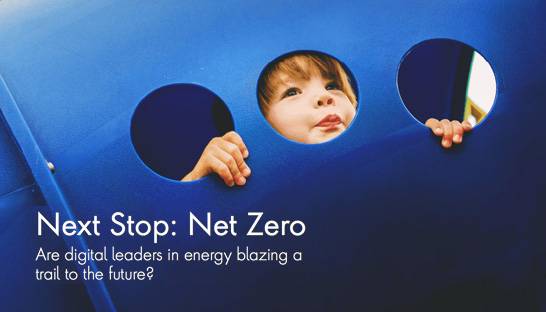[ad_1]
The convergence of net zero ambitions, evolving digital and industrial technologies, as well as changing consumer awareness are driving the emergence of new digital opportunities within the energy system, writes David Leung, Senior Manager Strategy & Consulting at digital transformation consultancy Publicis Sapient.
The World Economic Forum (WEF) estimates the potential of digital transformation to unlock $1.3 trillion in value for the global energy sector alone.
Australian energy suppliers are among the global pioneers in digitizing towards net zero ambitions. Publicis Sapient’s ‘Next Stop: Net Zero’ survey revealed a clear intention for Australian energy suppliers to use digital business transformation to achieve net zero results.

70% of Australian energy suppliers are actively involved in implementing digital transformation strategies to help achieve net zero targets – well above the global average of 50% of energy suppliers. 88% of Australian respondents also said the net zero agenda provided them with an opportunity to transform their business more broadly.
While other global markets are still in the process of defining value funds, Australia is one step ahead with a focus on creating strategic responses and actions. What is the target business model? What is the investment plan? What is the actual implementation plan?
In the medium term, there is an opportunity for Australian energy businesses and their investors to use Australia’s recent energy transition experience, as well as the lessons learned from these journeys, to explore value funds around the world.

Evolving customer expectations
Australia’s exposure to the destructive effects of climate change is leading to increased government, consumer and shareholder visibility of the impacts of climate risks and the need for net zeroing compared to other jurisdictions.
Customers are increasingly demanding that energy companies support net zero efforts. 78% of Australian energy suppliers surveyed cited increased customer pressure for greener sustainability as a key challenge in the past five years – the highest rate of any region surveyed.
Meanwhile, the diversity and complexity of customer needs throughout the energy supply chain is evolving as the energy system evolves. Changes can range from increased participation-related queries, increasing renewable generation load and connection requirements related to an alternative consumption model and complexity further upstream to new market behavior supported by system-wide business model innovations.

Australia’s strong adoption of renewables over the past few decades has created the conditions for experimentation that other regions have yet to achieve. The next phase will be about orchestration and how digital technology can enable visibility and control over the underlying parts to drive value.
One of the key challenges will be standardization and interoperability, although some of these aspects are harder to agree on when people and organizations invest in products and processes, which can mean that decisions in this space create winners and losers.
The Rise of Digital Energy Challengers
Australian energy suppliers are more concerned than their global peers about increased competition from “digital native” challengers and how they should respond. 44% of Australian respondents said challengers were an extremely influential motivator in driving their company’s digital transformation agenda (compared to an average of 28% in other regions).
Australia has a highly supportive environment for digital energy challengers. Compared to other parts of the world, there is a strong central focus, consumer appetite and supportive technological and environmental conditions for new challengers looking to offer digital energy business and market models in Australia.

The government has been an integral part of the change management with targeted support for start-ups and the SME segments to increase the rate of innovation and competitive pressure in the market. Incumbents are forced to think and act with competitive responses to maintain value and relevance as challengers rapidly approach and exploit new sources of value.
With clear and decisive action, incumbents are well-positioned to benefit from a one-off capture of value funds given their strong market position, existing brand equity, operational experience, regulatory clout and capital, and the readiness of the Australian market. , while challengers have access to unprecedented scaling opportunities.
The net zero mission has become a powerful mantra to drive digital transformation strategies, providing energy suppliers with the opportunity to transform from the inside out.
If energy suppliers are to realize their net zero ambitions, there must be a significant rethinking of their digital strategies. This includes creating new partnerships across ecosystems, achieving a deep understanding of customer data, and instilling a culture of innovation. Culture must be instilled from the top down: if management is not aligned with the organization’s digital transformation agenda, it will be impossible to sustain it.
[ad_2]


